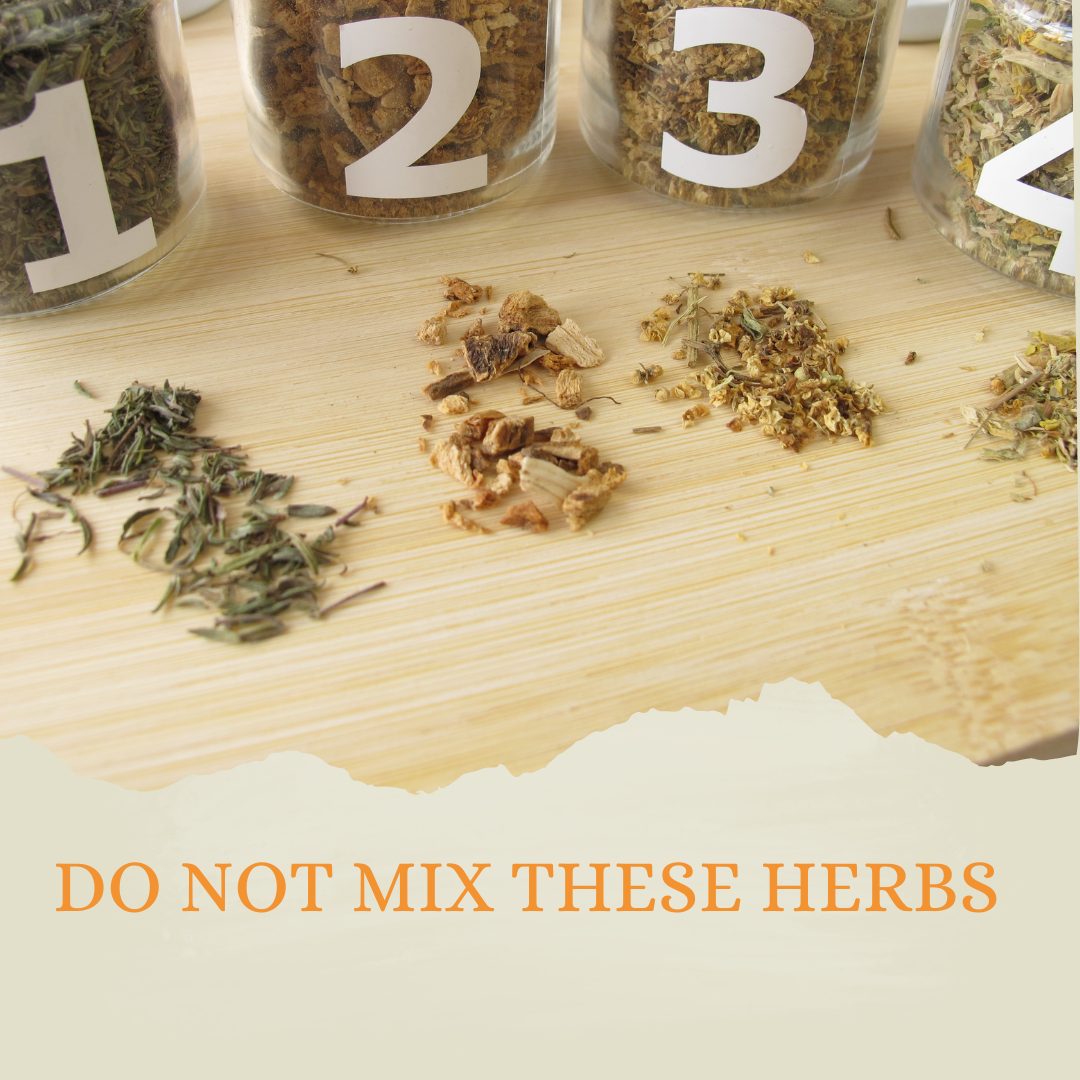Herbs You Should NOT mix: Understanding Herbal Combinations
Herbal remedies have been used for centuries to support health and well-being, but not all herbs work well together. While many combinations are safe and beneficial, others can lead to unwanted side effects or even dangerous consequences. At Wholifeco, we believe in the power of nature, and understanding how to use herbs safely is key to harnessing their full potential. We will explore common herb combinations that should be avoided and explains the reasons behind their risks.
Ginseng and Caffeine: A Double Dose of Stimulation
Why not: Both ginseng and caffeine are natural stimulants. When combined, they can overstimulate your nervous system, leading to increased heart rate, anxiety, and restlessness. Over time, this combination may cause cardiovascular stress or heightened nervousness, which can impact your mental and physical health.
Potential Consequences: Overstimulation, increased heart rate, anxiety, restlessness.
St. John’s Wort and Antidepressant Herbs (Kava, Valerian)
Why not: St. John’s Wort is a powerful herb that interacts with antidepressants and other mood-regulating medications. Mixing it with sedative herbs like kava or valerian may amplify their effects, leading to excessive drowsiness or even more serious consequences such as serotonin syndrome—a potentially life-threatening condition caused by too much serotonin in the brain.
Potential Consequences: Extreme drowsiness, impaired coordination, serotonin syndrome.
Ginkgo Biloba and Blood-Thinning Herbs (Garlic, Ginger, Turmeric)
Why not: Ginkgo Biloba is often used to improve circulation, but it also acts as a natural blood thinner. When combined with other blood-thinning herbs like garlic, ginger, or turmeric, the risk of excessive bleeding or bruising increases. This can be particularly dangerous for people on blood-thinning medications or with bleeding disorders.
Potential Consequences: Increased risk of bleeding, bruising, excessive blood thinning.
Licorice Root and Diuretic Herbs (Dandelion, Parsley)
Why not: Licorice root is known for its soothing effects on the digestive system, but it can also cause potassium levels in the body to drop. When taken with diuretic herbs such as dandelion or parsley, which encourage the elimination of fluids, the body’s potassium levels can plummet, leading to electrolyte imbalances and dehydration.
Potential Consequences: Potassium depletion, dehydration, electrolyte imbalance.
Ephedra (Ma Huang) and Stimulant Herbs (Caffeine, Yohimbe)
Why not: Ephedra is a strong stimulant that increases energy and metabolic rate, but it can also raise blood pressure and heart rate. Mixing it with other stimulants like caffeine or yohimbe can lead to dangerous spikes in blood pressure, heart palpitations, and in extreme cases, stroke or heart attack. This combination is best avoided altogether due to its severe risks.
Potential Consequences: High blood pressure, heart palpitations, stroke, heart attack.
Kava and Sedative Herbs (Valerian, Hops, Passionflower)
Why not: Both kava and other sedative herbs like valerian, hops, and passion flower have calming effects. When taken together, these herbs can overly sedate the body, leading to extreme drowsiness, impaired motor function, and even respiratory depression, especially if taken in large doses.
Potential Consequences: Excessive sedation, impaired coordination, respiratory depression.
Goldenseal and Echinacea: Immune Overload
Why not: Goldenseal and echinacea are both potent immune stimulants. While they are effective individually, using them together for extended periods may overburden your immune system. This can lead to immune fatigue, reducing your body's ability to fight off infections effectively and potentially causing more harm than good.
Potential Consequences: Immune fatigue, reduced immune response, over-stimulation of immune system.
Hawthorn and Blood Pressure-Lowering Herbs
Why not: Hawthorn is often used to support heart health and lower blood pressure. Combining it with other blood pressure-lowering herbs like garlic or ginger can cause your blood pressure to drop too low, which can result in dizziness, fainting, and even shock in severe cases.
Potential Consequences: Dangerously low blood pressure, dizziness, fainting, shock.
Aloe Vera (Internal) and Laxative Herbs (Senna, Cascara Sagrada)
Why not: Aloe vera, when taken internally, has natural laxative properties. If combined with other powerful laxatives like senna or cascara sagrada, it may cause diarrhea, dehydration, and even electrolyte imbalances. Long-term use of such combinations can also damage the intestines and lead to dependency on laxatives for regular bowel movements.
Potential Consequences: Diarrhea, dehydration, electrolyte imbalance, bowel dependency.
Ashwagandha and Sedative Herbs (Valerian, Chamomile)
Why not: Ashwagandha is an adaptogenic herb known for its calming effects, but when combined with other sedative herbs like valerian or chamomile, the sedative effect can become too strong. This can lead to extreme drowsiness, making it difficult to stay alert and impairing motor skills.
Potential Consequences: Excessive drowsiness, impaired motor function, slowed reaction times.
Safe Herbal Practices: What You Need to Know
When using herbal remedies, it’s essential to do your research and understand how different herbs interact with each other. While herbal medicine is powerful, combining the wrong herbs can lead to harmful side effects or even serious health issues. Here are a few tips for safely using herbs:
- Consult with a Professional: Always consult with a healthcare professional or herbalist before combining herbs, especially if you’re on medication or have pre-existing health conditions.
- Start Small: If trying a new combination of herbs, start with a small dose to see how your body reacts before increasing the dosage.
By understanding the potential risks of mixing herbs and choosing your herbal combinations wisely, you can safely enjoy the many health benefits that nature offers. At Wholifeco, we prioritize your wellness and only carry products that are safe, effective, and supportive of a holistic lifestyle. Stay informed, and use herbs responsibly for optimal health!
